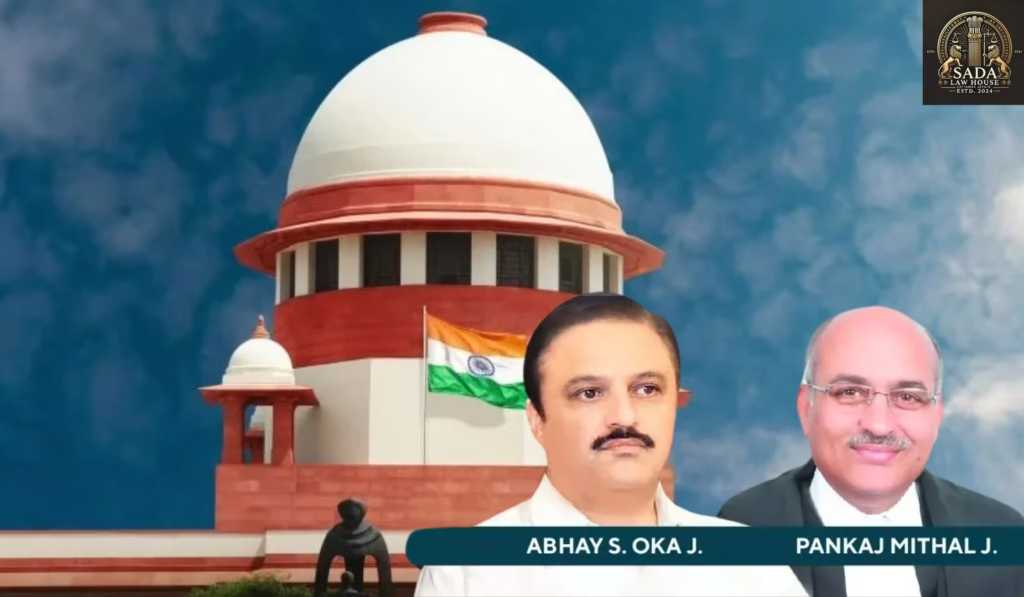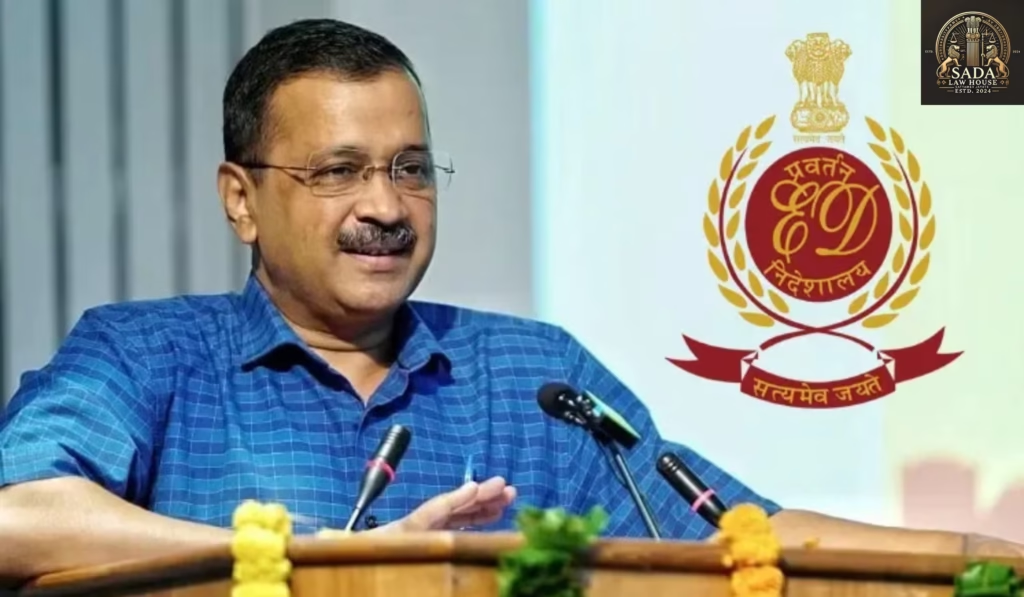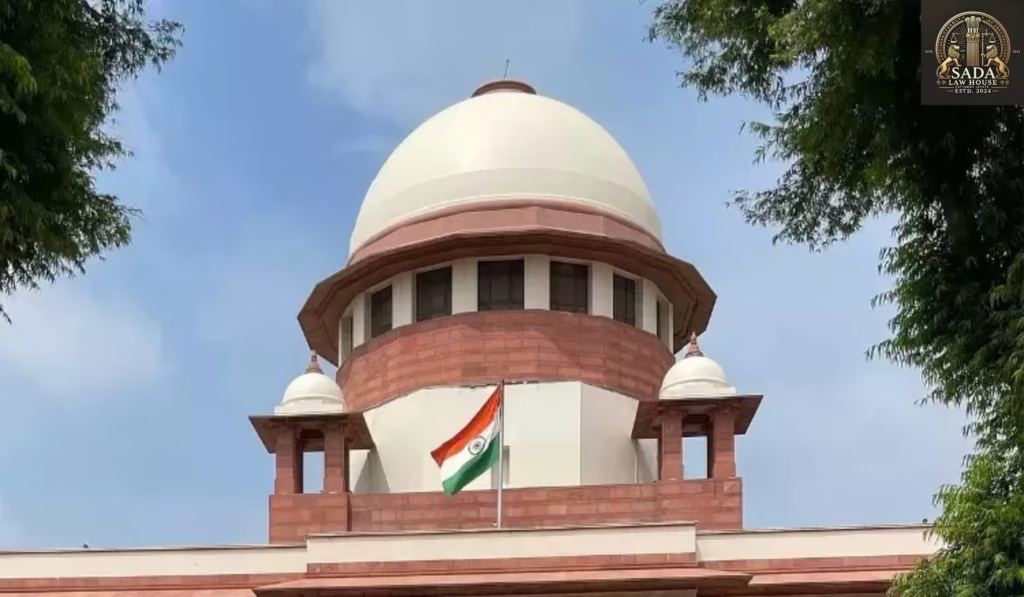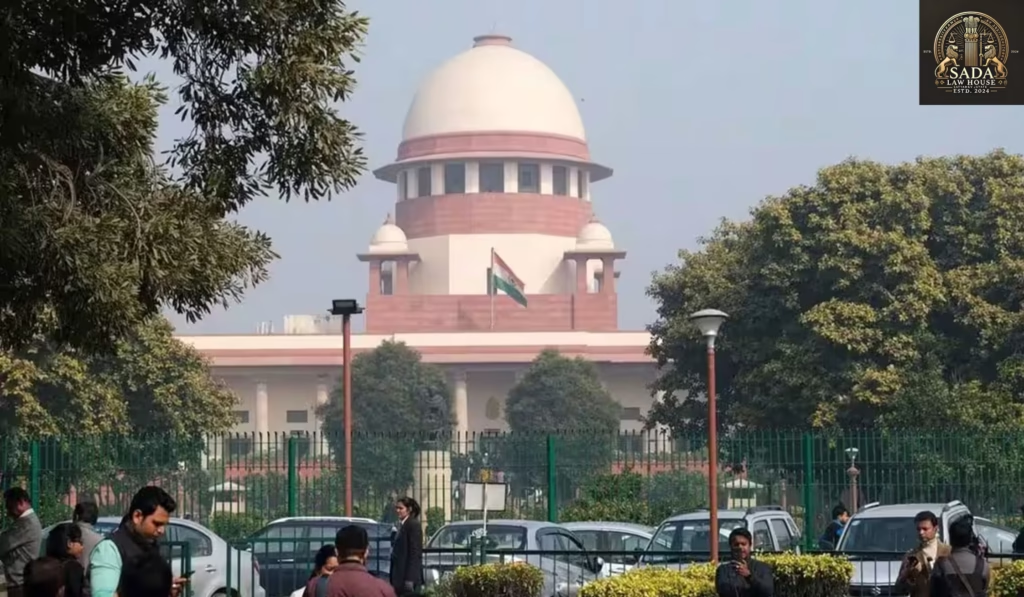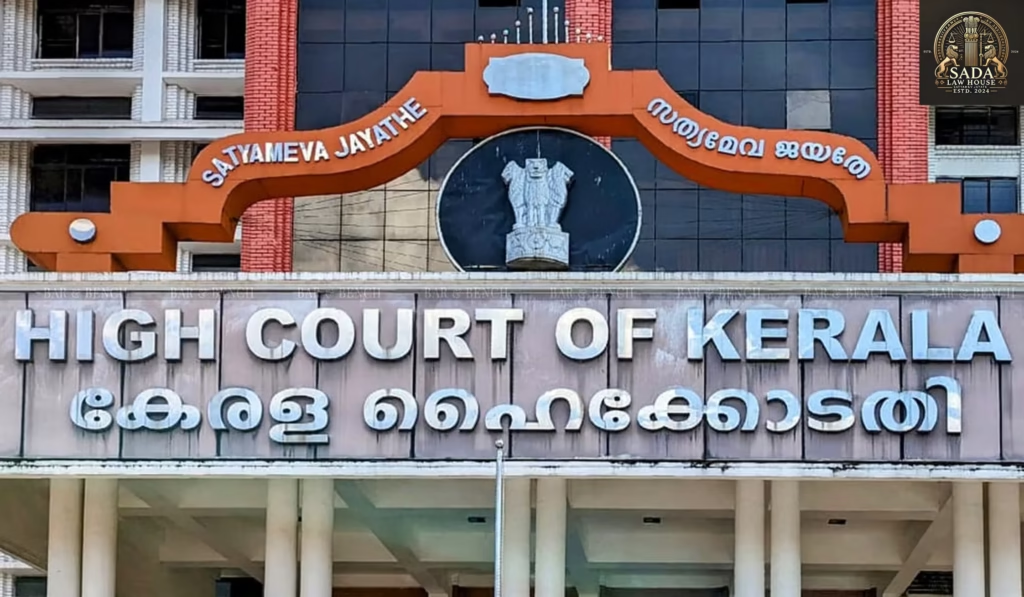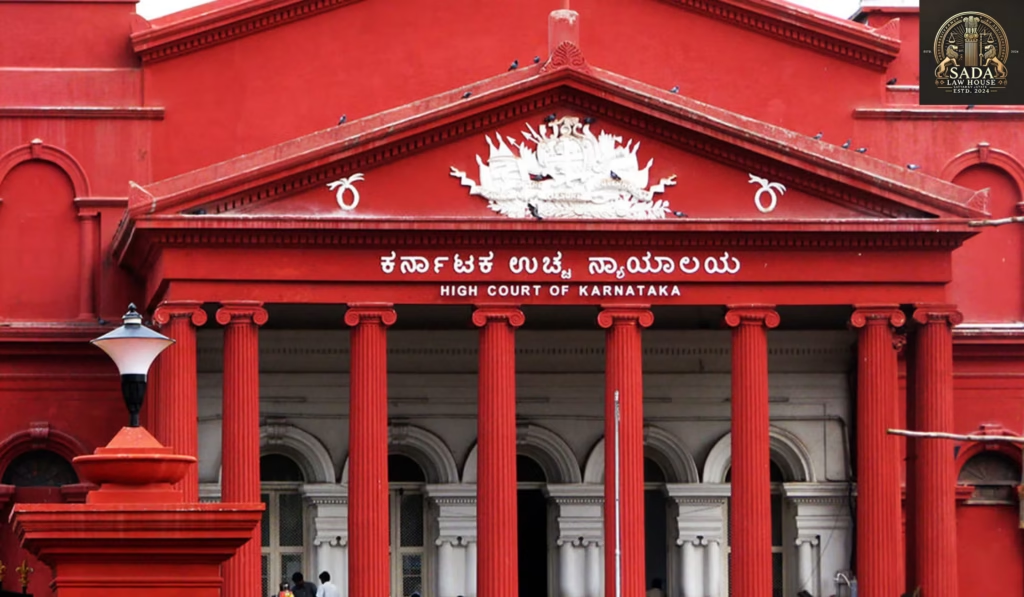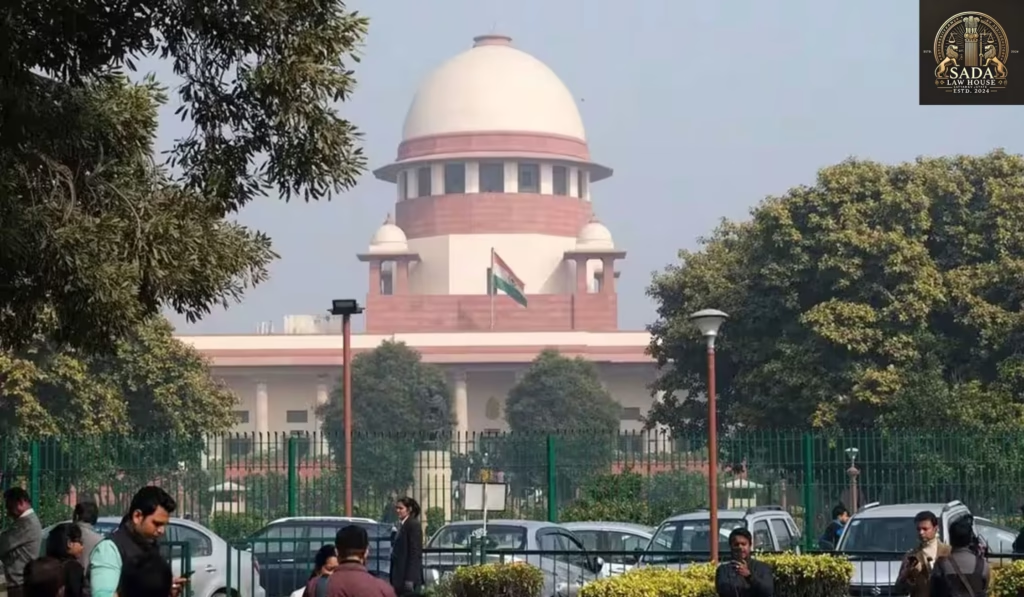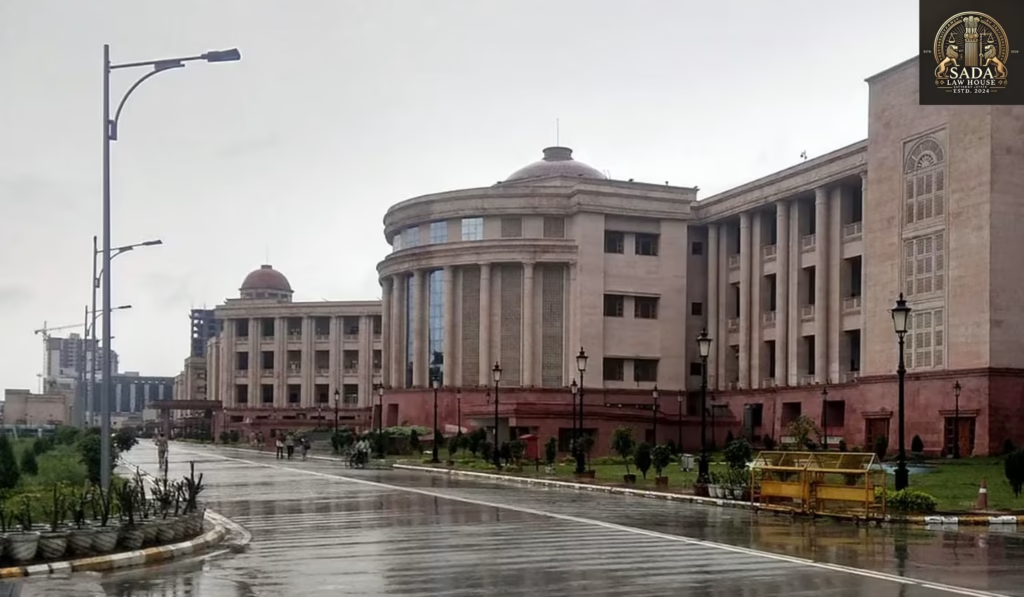Supreme Court Limits Appellate Powers Under Arbitration Act: Avoid Bulky Submissions, Stresses Efficiency
Trending Today Supreme Court: Divorced Muslim Women Entitled to Maintenance Under Section 125 CrPC Alongside 1986 Act Supreme Court Limits Appellate Powers Under Arbitration Act: Avoid Bulky Submissions, Stresses Efficiency Supreme Court Grants Interim Bail to Arvind Kejriwal in PMLA Case, Refers ED Arrest Challenge to Larger Bench Supreme Court Increases Permanent Alimony to ₹50,000 Monthly, Ensuring Ex-Wife’s Marital Standard of Living Supreme Court Rules No Temporary Injunction Allowed After Rejection of Plaint Under Order VII Rule 11 CPC Supreme Court Clears Teacher of Abetment Charges in Student Suicide Case Under Section 306 IPC Kerala High Court Upholds Trial of Bank Employee Accused of Threatening to Kill Chief Minister JOB OPPORTUNITY AT PUNJABI UNIVERSITY, BATHINDA COLLEGE OF LAW LEGAL JOB OPPORTUNITY AT BHARATI VIDYAPEETH Karnataka High Court Rules Police Cannot Access Call Records Without Justified Investigation Supreme Court Limits Appellate Powers Under Arbitration Act: Avoid Bulky Submissions, Stresses Efficiency REHA BHARGAV 02 june 2025 The Supreme Court, in Bombay Slum Redevelopment Corporation Pvt. Ltd. v. Samir Narain Bhojwani, emphasized the need for brevity in arbitration appeals and clarified limits on appellate powers under Section 37 of the Arbitration and Conciliation Act, 1996. Introduction: Key Takeaway from the Supreme Court’s Decision In a landmark judgment dated July 8, 2024, the Supreme Court of India addressed significant legal issues concerning arbitration law, particularly the scope of appellate authority under Section 37 of the Arbitration and Conciliation Act, 1996. The case, Bombay Slum Redevelopment Corporation Pvt. Ltd. v. Samir Narain Bhojwani, revolved around a dispute over a slum redevelopment project in Mumbai and highlighted the importance of efficiency and brevity in arbitration proceedings. Case Background: Facts and Timeline Parties Involved Petitioner: Bombay Slum Redevelopment Corporation Pvt. Ltd. (BSRCL) Respondent: Samir Narain Bhojwani Development Agreement Dispute In 2003, both parties entered into a development agreement for a slum rehabilitation project. SNB was responsible for constructing 120 flats, with 55% allocated to BSRCL and 45% to SNB. However, disputes soon arose over performance and obligations. Arbitral Award (2018) An Arbitral Tribunal ruled in favor of SNB, ordering BSRCL to hand over possession of certain flats. High Court Proceedings BSRCL challenged the award under Section 34. A Single Judge set aside the award. SNB appealed under Section 37, and a Division Bench remanded the matter back to the Single Judge without ruling on merits. Key Legal Issue Can an appellate court under Section 37 remand a case, or is its role limited to affirming, modifying, or setting aside an arbitral award? This central issue called into question the extent of appellate powers under the Arbitration and Conciliation Act. Arguments Presented Appellant (BSRCL) Asserted that Section 37 restricts appellate courts from remanding cases. Argued that remanding prolongs litigation and defeats the purpose of arbitration as a time-efficient dispute resolution mechanism. Respondent (SNB) Defended the Division Bench’s action as judicial discretion. Cited past precedents where remands were made to ensure fair adjudication. Supreme Court Judgment Highlights Limited Scope of Section 37 The Supreme Court set aside the Division Bench’s remand order, stating that: Appellate courts under Section 37 do not have blanket powers to remand matters. Remands are permissible only in rare and unavoidable circumstances. Brevity in Arbitration Submissions The Court strongly discouraged bulky pleadings and lengthy submissions, emphasizing: The need to maintain efficiency in arbitration proceedings. That lawyers and litigants should prioritize clarity and conciseness. Next Steps The matter was restored to the Division Bench of the Bombay High Court with instructions to decide the appeal on its merits, considering both the arbitral award and the Single Judge’s decision. Conclusion: Upholding Arbitration Efficiency and Judicial Discipline This decision reinforces the Supreme Court’s commitment to ensuring speedy and effective resolution of disputes through arbitration. By limiting appellate intervention and promoting brevity in pleadings, the Court aims to prevent arbitration from becoming as time-consuming as traditional litigation. Key Takeaways for Legal Professionals Avoid excessive documentation in arbitration appeals. Understand the limited powers under Section 37 before filing appeals. Embrace concise and well-structured submissions to align with judicial expectations. Leave a Reply Cancel Reply Logged in as Sada Law. Edit your profile. Log out? Required fields are marked * Message* Case Laws Supreme Court: Divorced Muslim Women Entitled to Maintenance Under Section 125 CrPC Alongside 1986 Act Supreme Court: Divorced Muslim Women Entitled to Maintenance Under Section 125 CrPC Alongside 1986 Act Sada Law • June 2, 2025 • Case law • No Comments Supreme Court Limits Appellate Powers Under Arbitration Act: Avoid Bulky Submissions, Stresses Efficiency Supreme Court Limits Appellate Powers Under Arbitration Act: Avoid Bulky Submissions, Stresses Efficiency Sada Law • June 2, 2025 • Case law • No Comments Supreme Court Grants Interim Bail to Arvind Kejriwal in PMLA Case, Refers ED Arrest Challenge to Larger Bench Supreme Court Grants Interim Bail to Arvind Kejriwal in PMLA Case, Refers ED Arrest Challenge to Larger Bench Sada Law • June 2, 2025 • Case law • No Comments 1 2 3 … 5 Next »

